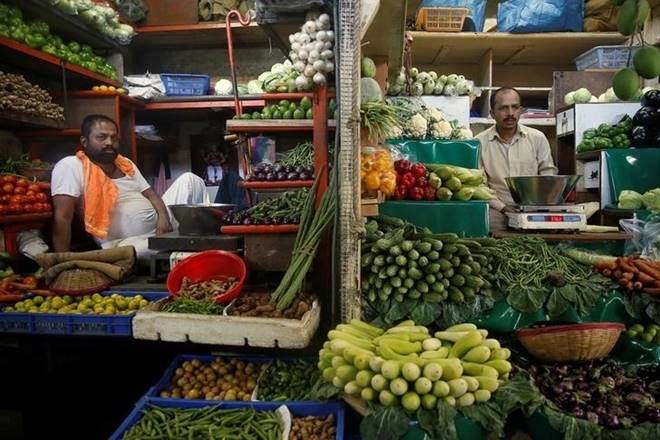Helped by smaller increases in food prices, the retail inflation rate eased to 4.17% in July, after touching a five-month high of 4.9% in the previous month, the government data showed on Monday.
Core inflation (excluding food and fuel) has remained in the upper band of the Reserve Bank of India’s target over the past 12 months. It reached 6.3% in July, marginally lower than 6.4% witnessed in June.
Despite the truckers’ strike, food inflation eased considerably in July 2018, benefitting from the base effect. Retail food inflation moderated to 1.37% in July from 2.91% in June.

“The CPI inflation in Q2 FY2019 looks set to lag the Monetary Policy Committee’s estimate of 4.6%, reducing the likelihood of a rate hike in the October 2018 policy review,” said ICRA principal economist Aditi Nayar.
Economic affairs secretary Subhash Chandra Garg tweeted: “All macroeconomic parameters are performing well. Inflation is down to 4.17%, very close to target of 4%. It is down from 5% in
June. Food inflation is only 1.37%.”
Vegetable prices contracted after a year, bringing down the overall inflation. It declined by 2% in July compared with an increase of about 7% in the previous month. Pulses and sugar continued to witness contraction in price level. Prices of pulses have been declining since last 20 months and sugar prices have been registering contraction since last six months.
“Increase in minimum support prices, kharif prospects, fiscal deficits, exchange rate-led inflation could put pressure on inflation notwithstanding the base effects,” said ICRA chief economist Madan Sabnavis.
As for year-on-year comparison, retail inflation had increased by 2.36% in July last year.

